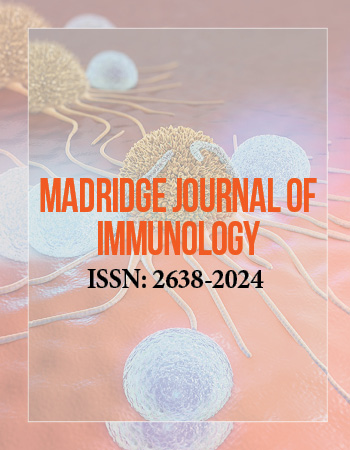International Conference on Immunology and Immunotechnology
November 1-3, 2017 Barcelona, Spain
Modulating the Metabolic Checkpoint to Improve Cancer Immunity
Moffitt Cancer Center & Research Institute, USA
Checkpoint blocking antibodies have dramatically changed the landscape of therapy in melanoma and are rapidly improving the outcome of many cancer patients. There is still an unmet clinical need to develop novel therapeutic combinations that target mechanism of tumor immune suppression to enhance the duration of response or the number of responders after checkpoint blockade. We found that cereblon (Crbn), an E3-ubiquitin ligase substrate receptor for the DDB1/Cul4A/Roc1 complex, genetic deficiency markedly improves effector T-cell function in the B16 melanoma mouse model. T-cells present in this hostile tumor microenvironment are exposed to hypoxia, high lactic acid, and poor nutrient availability that limit their anti-tumor cytotoxic potential. While similar total intratumoral T-cells and splenic populations are present in tumor-bearing Crbn-/-mice, the proportion of CD44+ melanoma reactive (TRP2+) tumor infiltrating lymphocytes (TIL) was increased significantly relative to Crbn+/+ mice. To explore this mechanistically, differentially-regulated genes and metabolic profiling demonstrated an increase in the uptake and metabolism of intermediates in the Arginine/Proline pathway. This pathway was also modulated by immunomodulatory drugs pomalidomide and CC-122 by suppressing CRBN function. Therefore, treatment with immunomodulatory compounds that block CRBN may act to overcome a metabolic checkpoint induced through nutrient restrictions in the tumor microenvironment.
Biography:
P.K. Epling-Burnette, PharmD, PhD is a researcher at the H. Lee Moffitt Cancer Center & Research Institute and a Professor at the University of South Florida (USF) in Tampa, Florida, USA. Her laboratory program focuses on novel therapies that overcome basic mechanisms of T lymphocyte and NK cell immune suppression. Dr. Epling-Burnette has an established track record of research in hematological malignancies including myelodysplastic syndromes (MDS) which has contributed to the discovery of cereblon and its role in metabolite regulation in T cells. Her research has identified several mechanisms that contribute fundamentally to cancer-associated immune suppression through translational studies.


